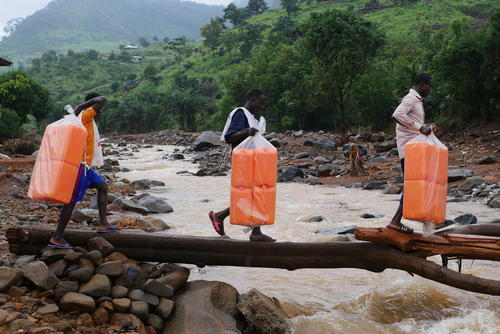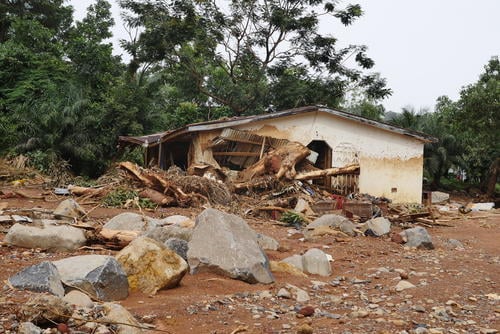On 14 August, a hillside collapsed and triggered a mudslide in the mountain town of Regent on the outskirts of Sierra Leone’s capital Freetown after a couple of days of torrential rain. Almost 500 people are reported dead, with an estimated 600 people missing, and 3,000 people left homeless.
MSF teams carried out assessments of most of the affected communities in the area, from the initial location of the mudslide in Regent and along the densely-populated river valley, to the ocean on the southern side of Freetown. As the immediate medical needs have been covered, MSF is focusing on ensuring people have access to clean water and sanitation facilities, as this is crucial for both meeting people’s urgent needs, as well as preventing outbreaks of diseases such as malaria and cholera. Many of the villages may also be at risk of further flooding and land instability in the narrow, flood-prone valley.
Our teams identified an urgent need for clean water and sanitation assistance in three communities – Pentagon, Kamyama and Jah Kingdom – which have been heavily affected by the severe flooding and mudslide. Teams have set up water distribution sites in Pentagon and Kamyama, and are providing clean water for around 4,000 people in these communities.
The community of Jah Kingdom has been particularly hard hit; the village is cut off except for a narrow river crossing. The one existing ground well for water has been flooded and left unusable. On 22 and 23 August, an MSF team carried out a distribution of water containers and buckets for 210 families and will continue to provide water and sanitation support as needed.

People displaced by the mudslide and flooding are quite dispersed, with many sheltering in places that have opened up in different communities, making it challenging to get a complete picture of people’s needs. It is essential that people living in precarious conditions are quickly provided with sufficient space in all temporary shelters, in order to access safe drinking water and sanitation facilities, medical care, and relief items.
Given the risk of water-borne diseases in such a disaster, MSF is also providing information to the affected communities about maintaining good hygiene practices and the importance of using clean water. At the same time, our teams are monitoring for any signs of these illnesses and are ready to respond in the event of an outbreak.
MSF will continue to assess the needs of people living in other affected communities in the area, including the mental health needs of people who have suffered significant trauma with the loss of family members, homes, and belongings.



